How to Coach Novices into Experts
- August 14th, 2019
- Tom Bean
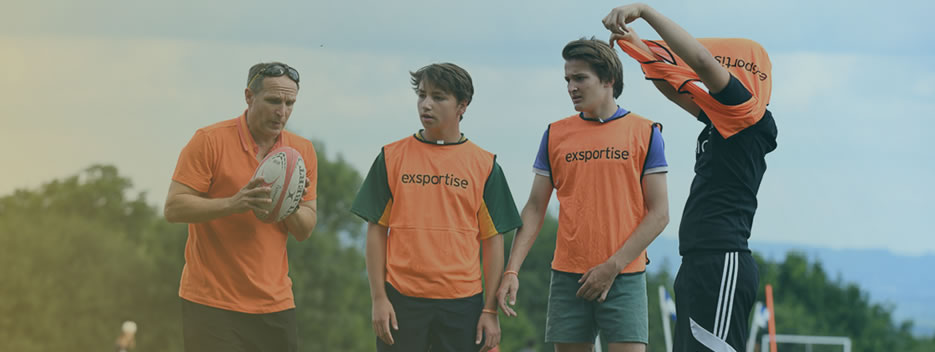
NOVICE: noun a person who is not experienced in a job or situation
Everyone is a novice in a particular skill or situation. To be an expert suggests an 'autonomy of foundational skills and an ability to see deeper structures' [1]. As a coach, that is exactly what we should look to achieve in every session.
'Expert' sounds like a bold term, you may suggest that you're no expert in coaching yourself. However, being an 'expert' is relevant to the level you are coaching and the skill level of your athletes.
Being a coach in itself means you have a high level of knowledge of the content you are teaching, therefore making you an expert at the given level you are working at.
There will always be someone who knows more on a specific topic or has more skill in a situation, yet that's not to suggest the next level is unachievable and the same should be said for the players you coach.
EXPERT: noun a person with a high level of knowledge or skill relating to a particular subject or activity
An expert is highly knowledgeable in a particular subject, therefore the idea of 'being an expert' should run throughout every stage of an individual's learning process. By becoming an expert in incremental steps will improve the overall skill-set.
Going From Novice to Expert
Those who have a lot of experience in situations and a high level of skill in a particular profession or sport have developed these over time, starting with being an expert in the most basic skills.
When playing sports, you are constantly recalling previously learned skills, regardless of how basic they are, and applying them to the new situation. As you learn these skills, they become automatic and you begin to recall them subconsciously - by definition, making you an expert of them.
Having a high level of knowledge in a skill, regardless of how basic it is, gives you the expertise from which you can progress to more advanced levels.
As an individual develops, their levels of expertise increase too and they move from novice to expert.
The Brick Wall
To illustrate this better, think of moving from novice to expert as a brick wall.
You have the small, foundation bricks at the bottom - these are the basic skills and experiences of the sport. With practice, they become automatic in nature and you become an expert in them.
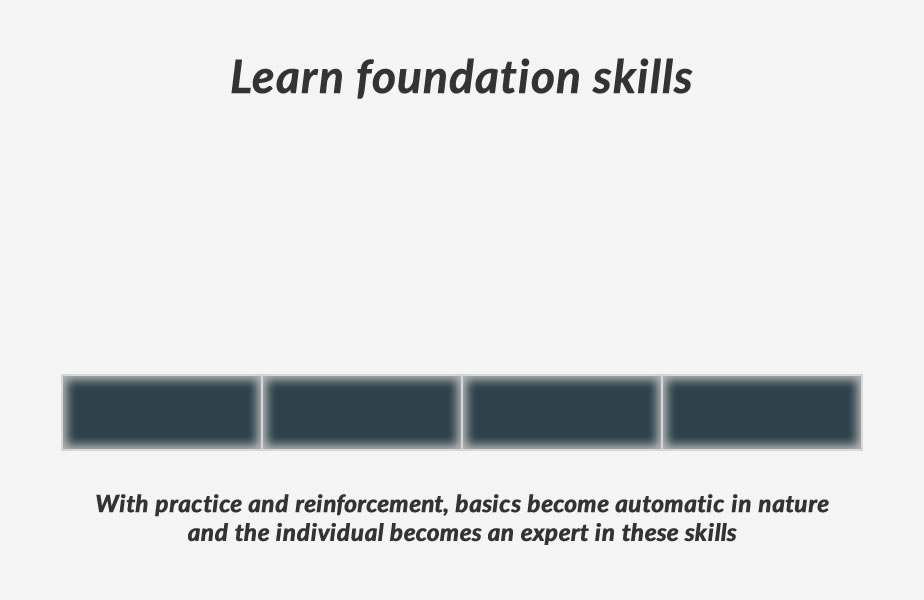
As you continue to build your skill-set (the wall), you are able to recall these basic skills (foundation bricks) subconsciously to help you when learning a more advanced activity.
With practice, the more advanced stage becomes learned and your skill level increases to a point where this becomes automatic - by definition, making you an expert in this new situation.
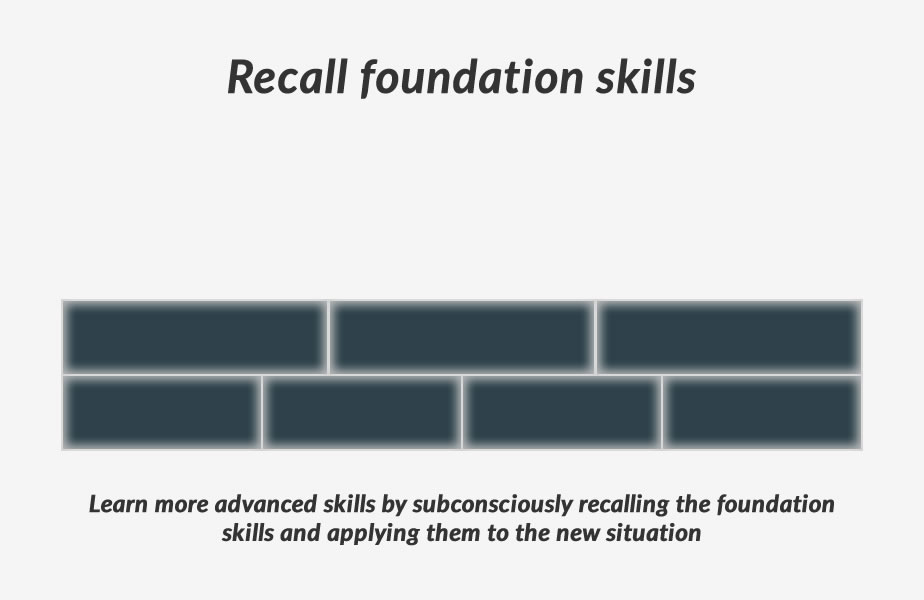
The next stage continues in the same vein as you build your wall and become more skilled in your specific sport. You recall the previously learned experiences again without thinking, and apply to learn more advanced skills.
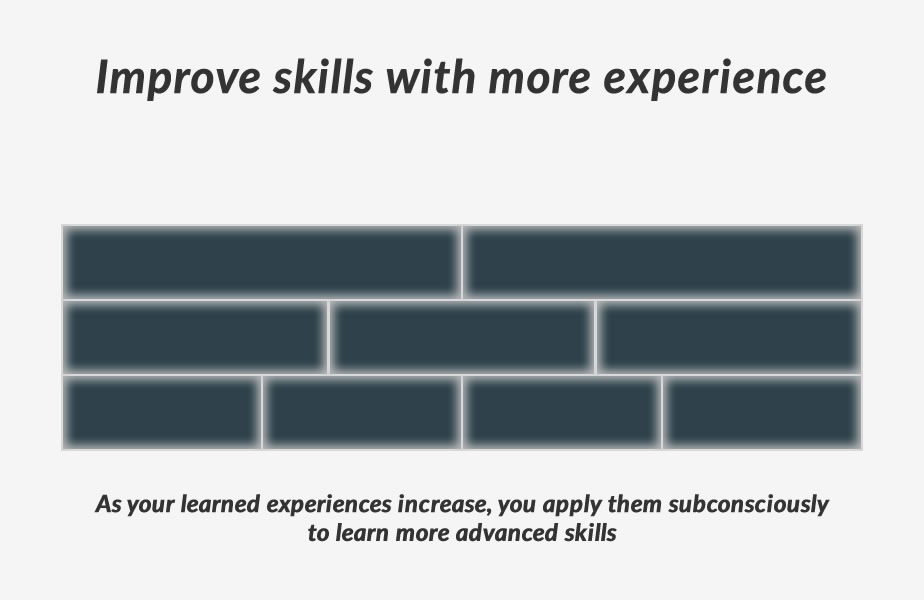
The model breaks down each level as mini-stages that the individual becomes an expert on as they learn them. The more bricks that an individual becomes an expert on, the more experiences they have to recall and they incrementally move along the Novice-Expert continuum.
How far an individual can go is limitless as there is always scope to learn new experiences to apply to learning new skills and building more level to the wall.
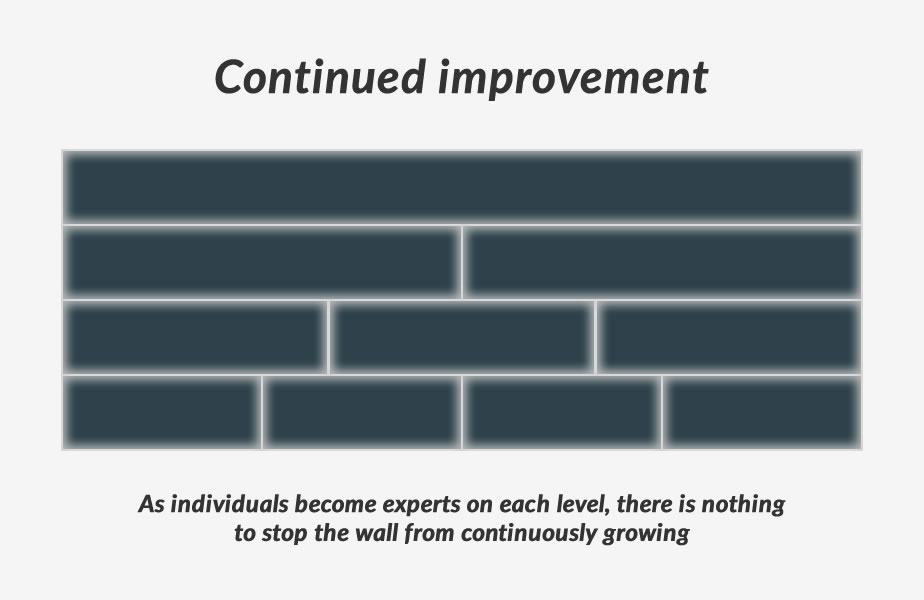
Applying This to Your Coaching
To apply this to your coaching, it is important to recognise what stage your athletes are at when planning your session.
Whenever introducing a more advanced skill, make sure your players are comfortable and have enough previous experience to be able to recall and learn new skills.
At the start of a session, recap skills learned in the previous session to refresh their minds to make it easier to recall them.
When teaching new skills, it's important to get your athletes out of their comfort zone but to make it fun. By making it enjoyable, it becomes easier to recall the previously learned skills subconsciously. The lack of pressure in an enjoyable environment leaves their mind clear of other pressure cues, giving them space to take in the new skill.
So next time you plan your sessions, think about how it progresses on from the previous one and how you can introduce new ideas which encourages your players to become experts on the next brick in their wall.
[1] David Didau, 2017. A Novice Expert Model of Learning https://learningspy.co.uk/learning/novice-expert-model-learning/?mc_cid=7286c64f22&mc_eid=a6fd238573 [Accessed 14-08-2019]